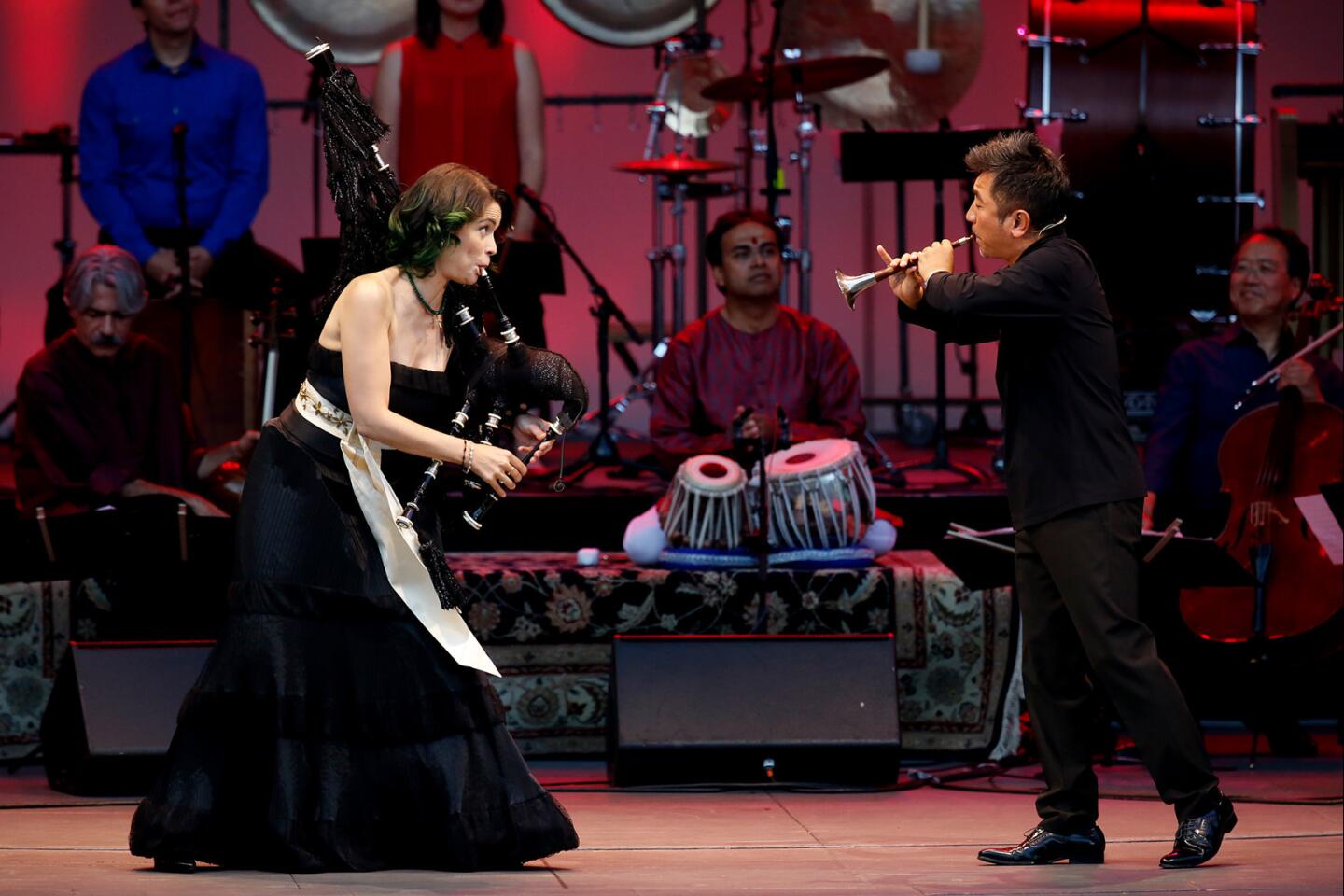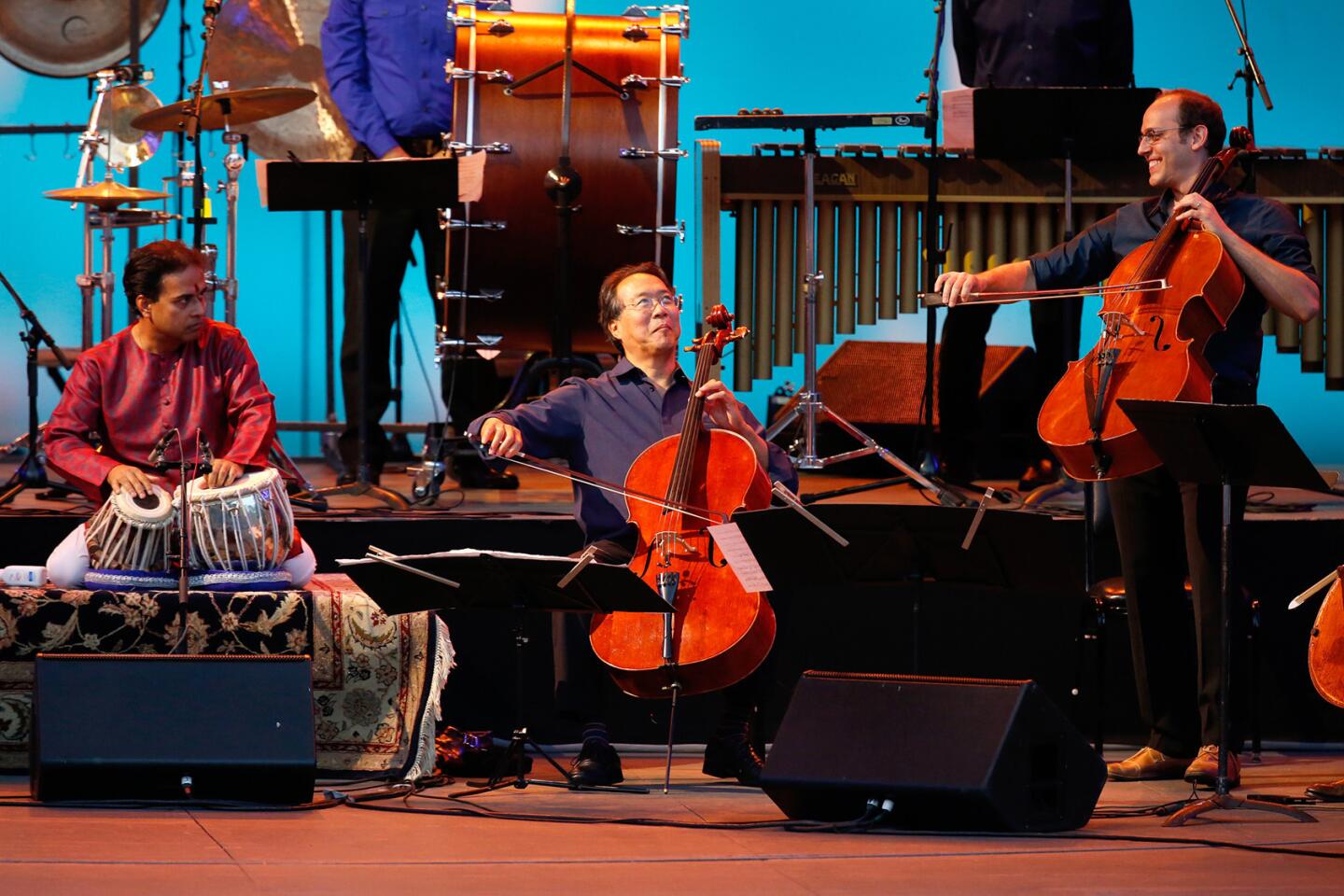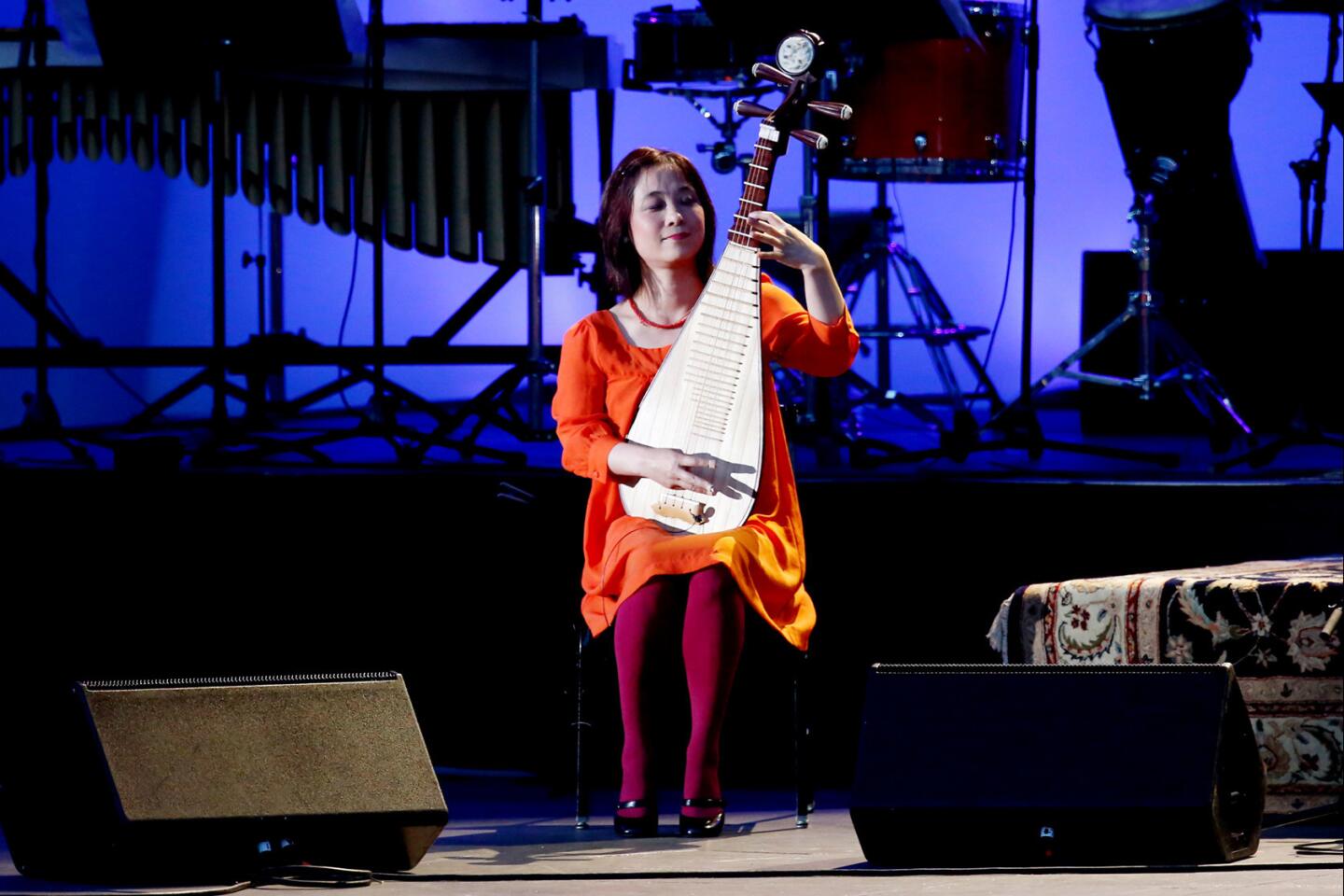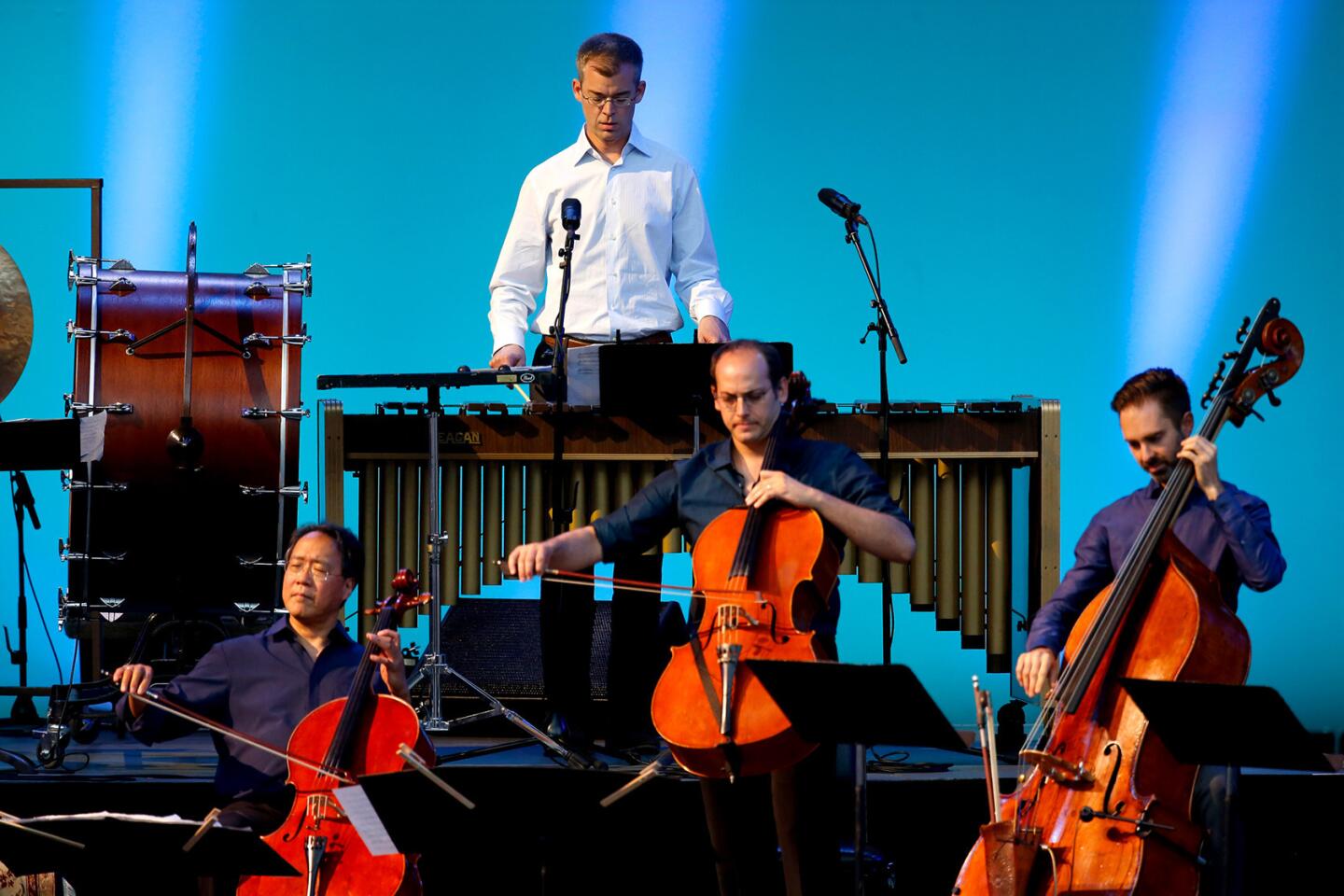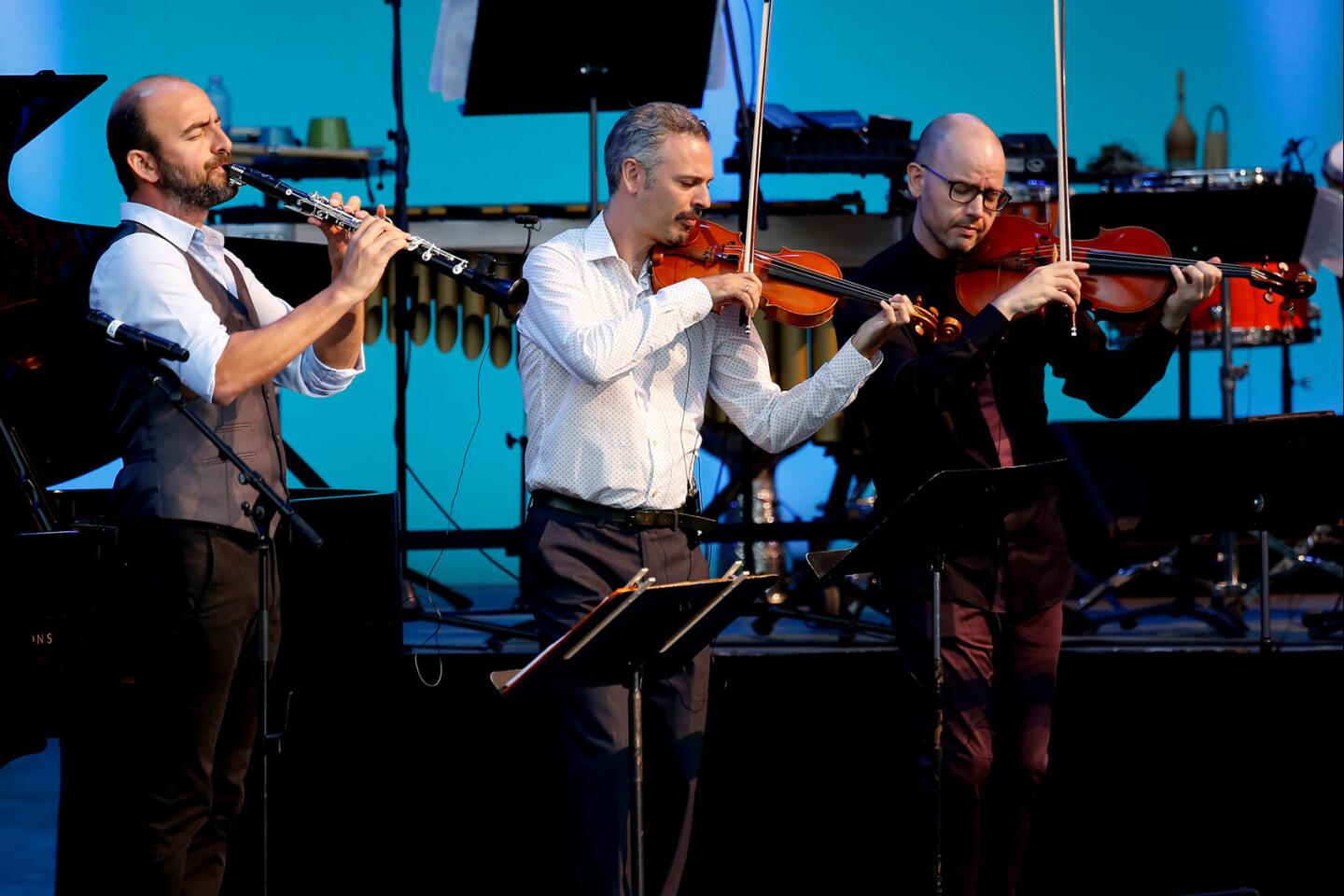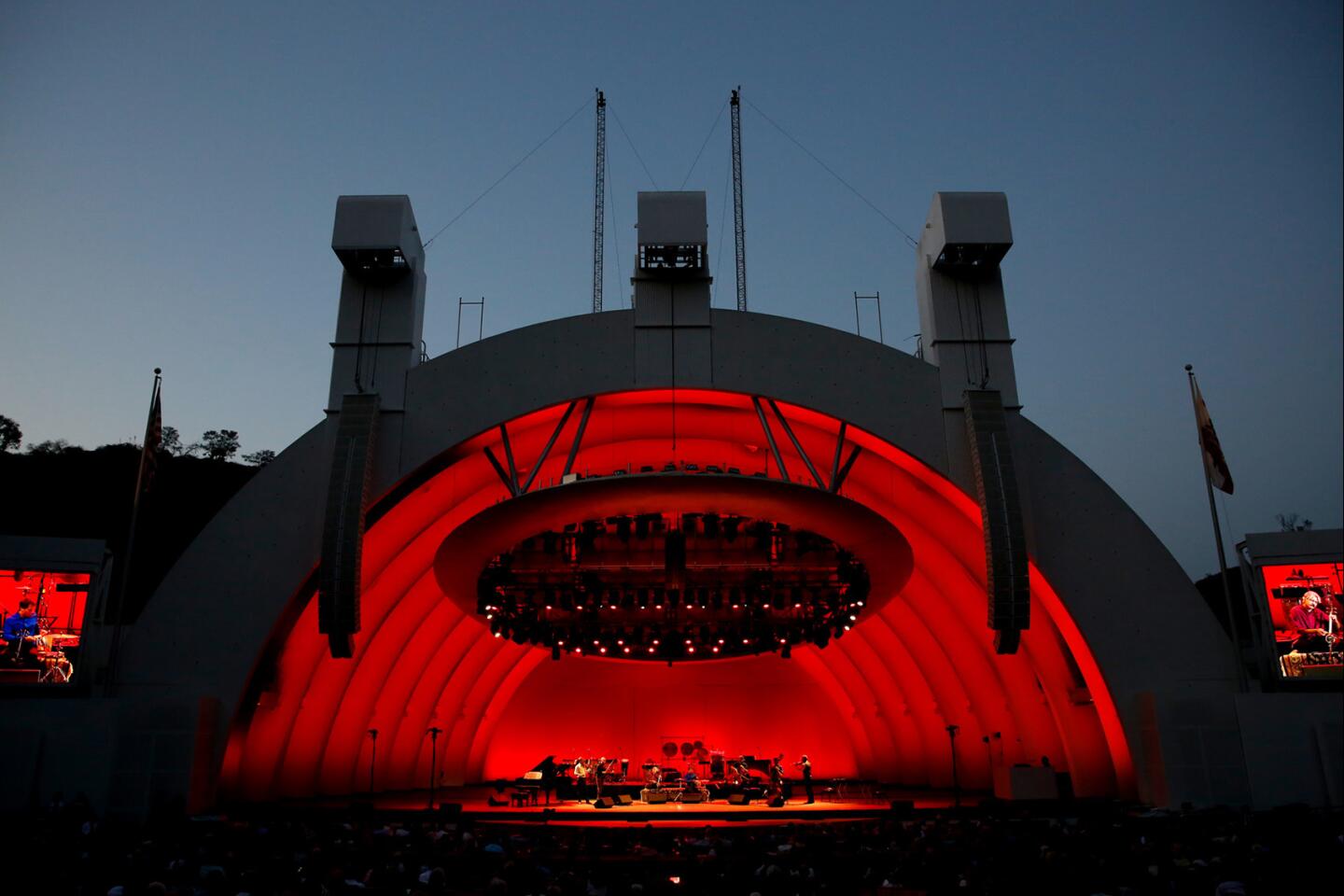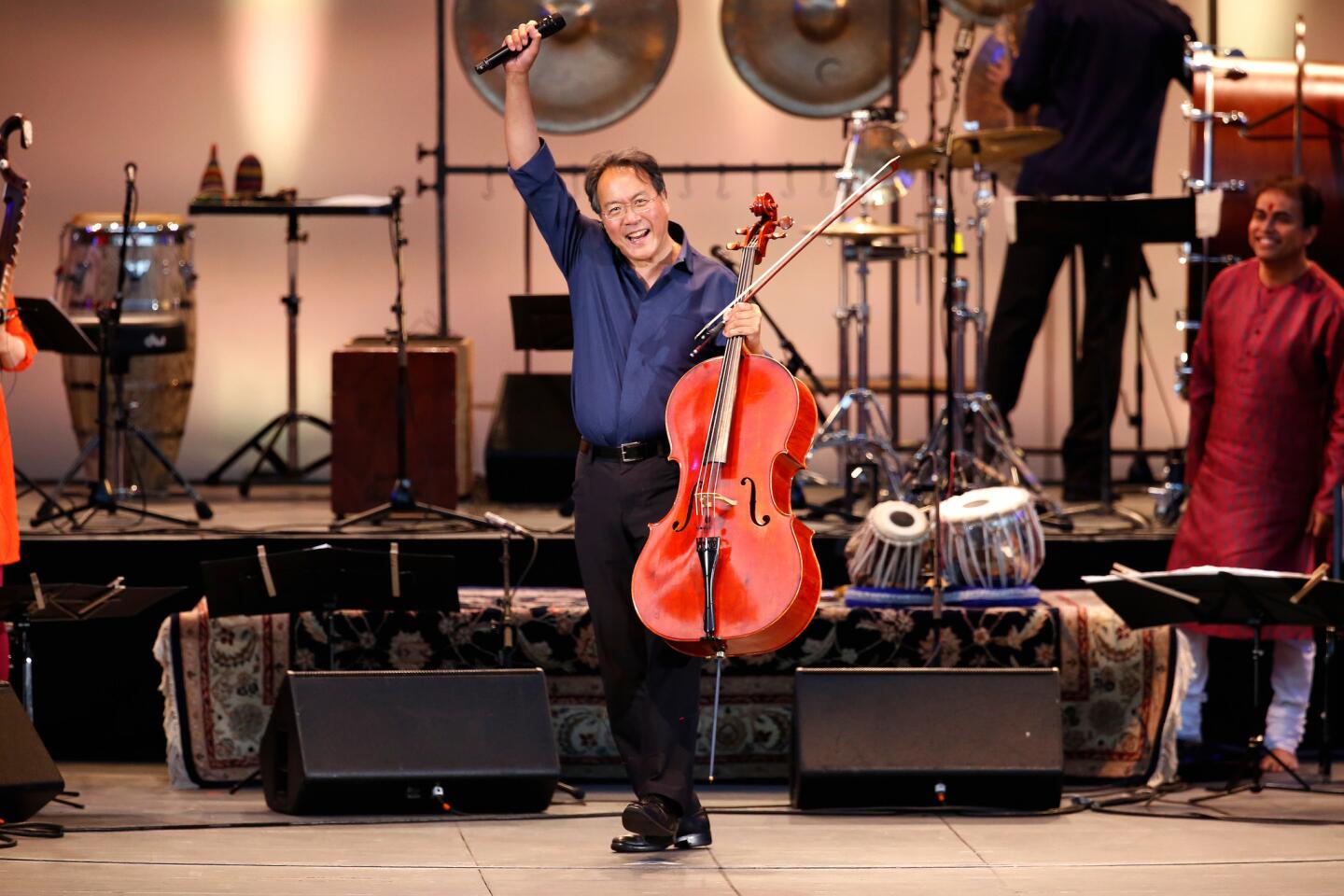Review: Yo-Yo Ma and the Silk Road Ensemble make some joyful noise at the Hollywood Bowl
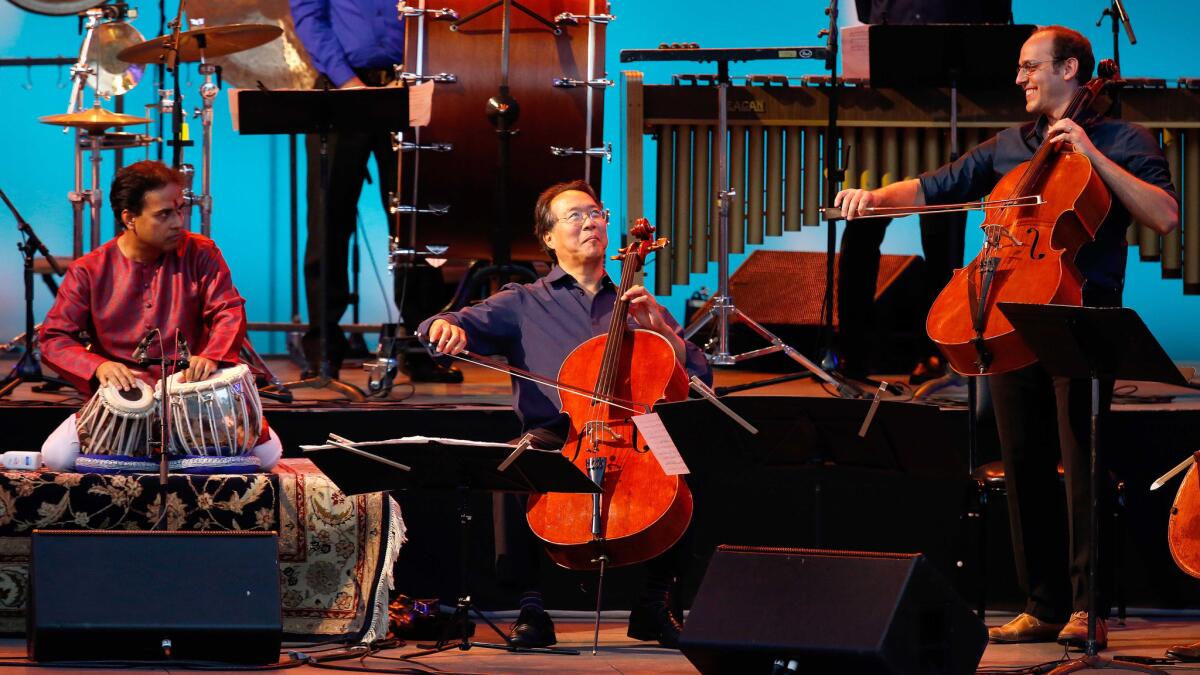
- Share via
The Silk Road Ensemble, Yo-Yo Ma’s grandly all-encompassing world music band that seeks to find meeting points for musical traditions from China to Europe, has proved after 18 years to be the ever-curious cellist’s most valuable project.
Whether this group has managed to make an iota of difference in peace and understanding along the Silk Road might be answered with a glance at the headlines on any given day. They suggest that no one has been listening.
But the Silk Road Ensemble has nevertheless produced a legacy of sometimes bold polystylistic fusions — six albums’ worth, along with the recent documentary film, “The Music of Strangers: Yo-Yo Ma and the Silk Road Ensemble.”
Although the personnel shifts from project to project, no fewer than nine members of the ensemble who played the first L.A. appearance in Royce Hall in 2002 were on hand for its U.S. tour-ending gig Sunday night at Hollywood Bowl. That’s more than half of the 17-person group.
SIGN UP for the free Essential Arts & Culture newsletter »
As was the case with other Silk Road Bowl concerts I’ve attended, the 17,000-plus-seat amphitheater looked packed, so the ensemble’s appeal to a mass audience remains undiminished. Ma may have been the initial drawing card, but he has long since functioned as just another member of the band, his calming presence graciously taking a back seat to some of the more flamboyant performers gathered around him.
Always savvy to promote their latest project, the Silk Road Ensemble’s sets were dominated by six selections from a new album, “Sing Me Home,” which veers more toward American folk music influences than ever before (as if the Silk Road now stretches across the Atlantic). But in live performance, the group’s music is tougher, more flowing from one idiom to the next, more energetic and confrontational than on the recordings, and also more uninhibitedly joyous in its celebration of the ability of these “strangers” to somehow make music together.
The performance opened with a bang — a droning duel of fanfares between the charismatic Galician bagpiper Cristina Pato (who also plays a mean classical piano) and Wu Tong on the suona (a loud Chinese double-reeded horn). This segued directly into “Ichichila,” for which Kojiro Umezaki’s shakuhachi and Kinan Azmeh’s clarinet solos had a pronounced jazz tinge to my ears, and eventually led to “Green (Vincent’s Tune),” whose mad jumble of sound, with the bass drum booming through the hills, produced a deliciously cacophonous freakout.
There were other intoxicating mergers — some written out, some improvised — like pipa master Wu Man’s hoe-down-like duet with Wu Tong on another Chinese reed instrument (the sheng), or a wonderfully weird polyglot deconstruction of Billy Strayhorn’s “Take the ‘A’ Train.” David Bruce’s “Cut the Rug,” which seems constructed like a four-movement symphony on CD, became a run-on series of grooves and meditations encompassing Balkan-like rhythms and Andalusian flamenco. Silk Road mainstay Kayhan Kalhor continued to mesmerize with his virtuosity on the kamancheh (a small Iranian spiked fiddle).
And as a parting shot, the ensemble closed the evening with an exotic arrangement of Prince’s “When Doves Cry” that fit the tune surprisingly well as the Bowl shell lit up in — of course — purple. Of all the Silk Road concerts I’ve attended, this one ranked as the most fun. And also the loudest.
Follow the Los Angeles Times’ arts team @culturemonster on Twitter.
ALSO:
Why America got it wrong on Riccardo Chailly and how the Italian conductor is proving it
‘The Menuhin Century’ is now: Why the violin master is still the sound of hope and peace
‘Exterminating Angel,’ the most important opera of the year, proves it’s here to stay
More to Read
The biggest entertainment stories
Get our big stories about Hollywood, film, television, music, arts, culture and more right in your inbox as soon as they publish.
You may occasionally receive promotional content from the Los Angeles Times.
